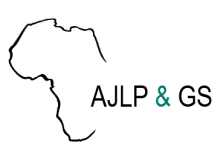Resource information
Context and backgroundDespite a social recomposition marked by the abolition of slavery and the emancipation of the layers of servile origin, access to land ownership rights for descendants of servile origin is far from guaranteed in Mauritania. Customary law based on Islamic jurisprudence stands up to the law of 1960 and the decrees of 1983 and previous legal reforms; in short, the modern legal arsenal does not elucidate, justify or facilitate equitable access of the descendants of the former servile strata to land like other landless Mauritanian communities. Supported in this by civil society organizations and politicians, they also come up against a lack of understanding of land issues and the difficulties of managing land disputes, sometimes leaving claimants on the sidelines, traditional landowners on the hook. live. Result: the wound of possible social tensions remains openGoal and objectivesThis study aims to analyze and clarify the difficulties of access of the descendants of servile strata to land on the basis of the texts of Islamic jurisprudence (sharia), customary law, the modern legal arsenal and its various laws, decrees and including the law of 1960, the decree of 1983 and its difficulties. This analysis also takes into consideration the socio-anthropological and legal dimension of the land issue.MethodologyWe formulated hypotheses to be able to carry out our analysis, which was based on a set of studies, institutional and legal documents and a few interviews with resource persons, among others... This approach made it possible to deliver a content analysis based on institutional, socio-anthropological, legal documents and draft decrees and laws.Results :The study tries to put an accent on the reality of the social recompositions, which highlights the appearance of the claims of the descendants of the serviles who claim a better access to the lands. These claims come up against the legitimate and customary rights of traditional owners. Inheritance, donations, sharecropping, in short the appropriation of land... are governed by the texts of Islamic jurisprudence, the workhorse of customary chiefs. These transactions remain current and legally at the service of customary law which leaves little room for intruders. Indeed, the results of this study have shown that access to land for descendants of servile strata remains a major problem that even the land reform of 1983 and other legal texts have not been able to resolve today.


